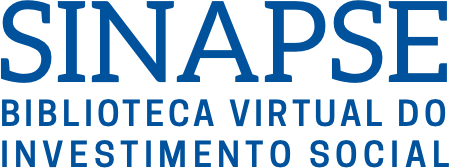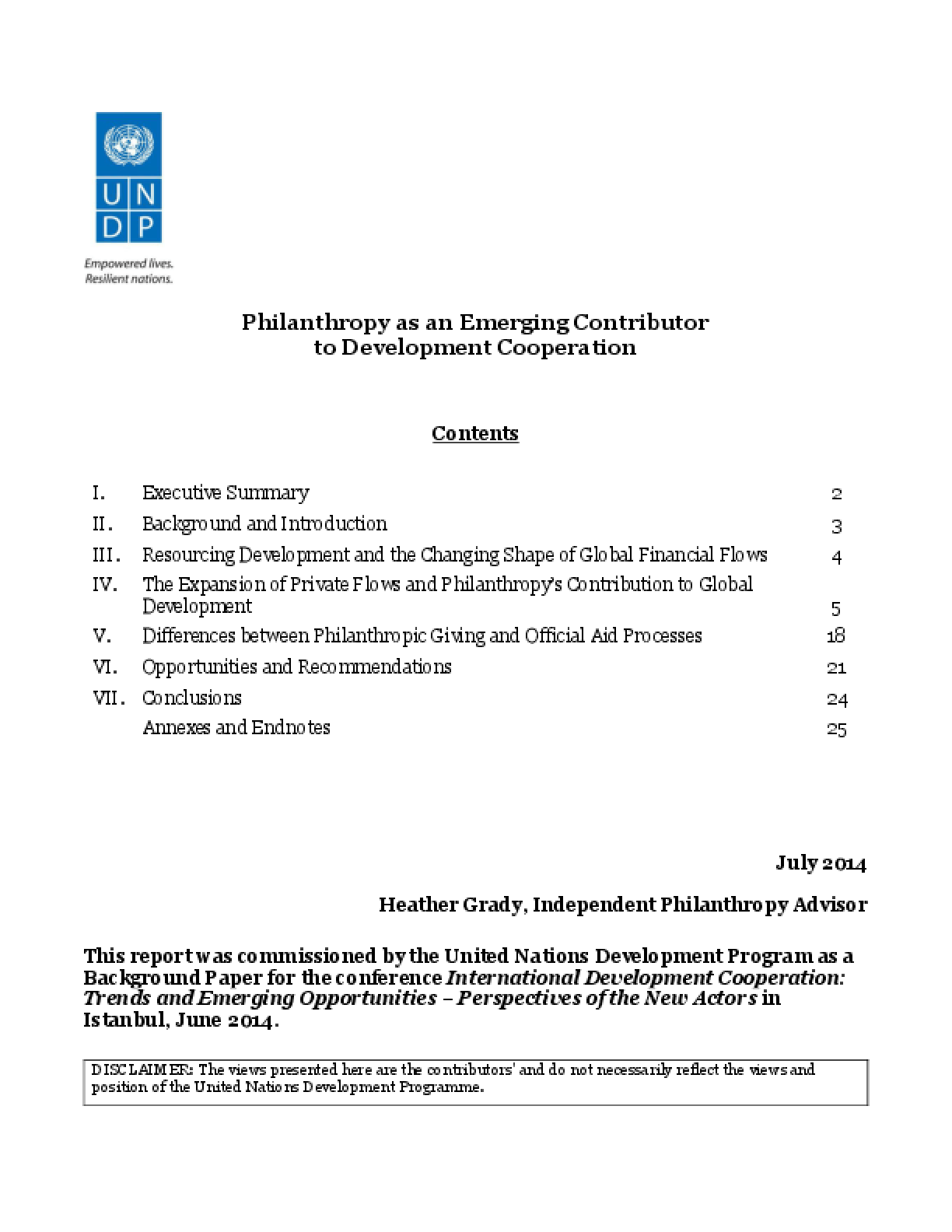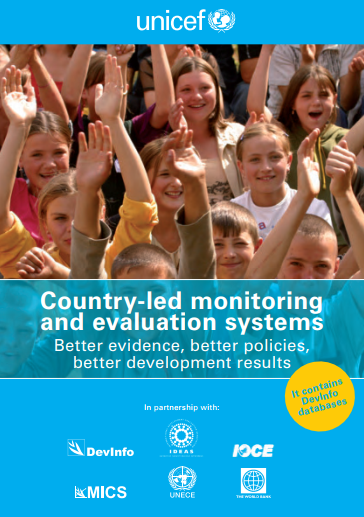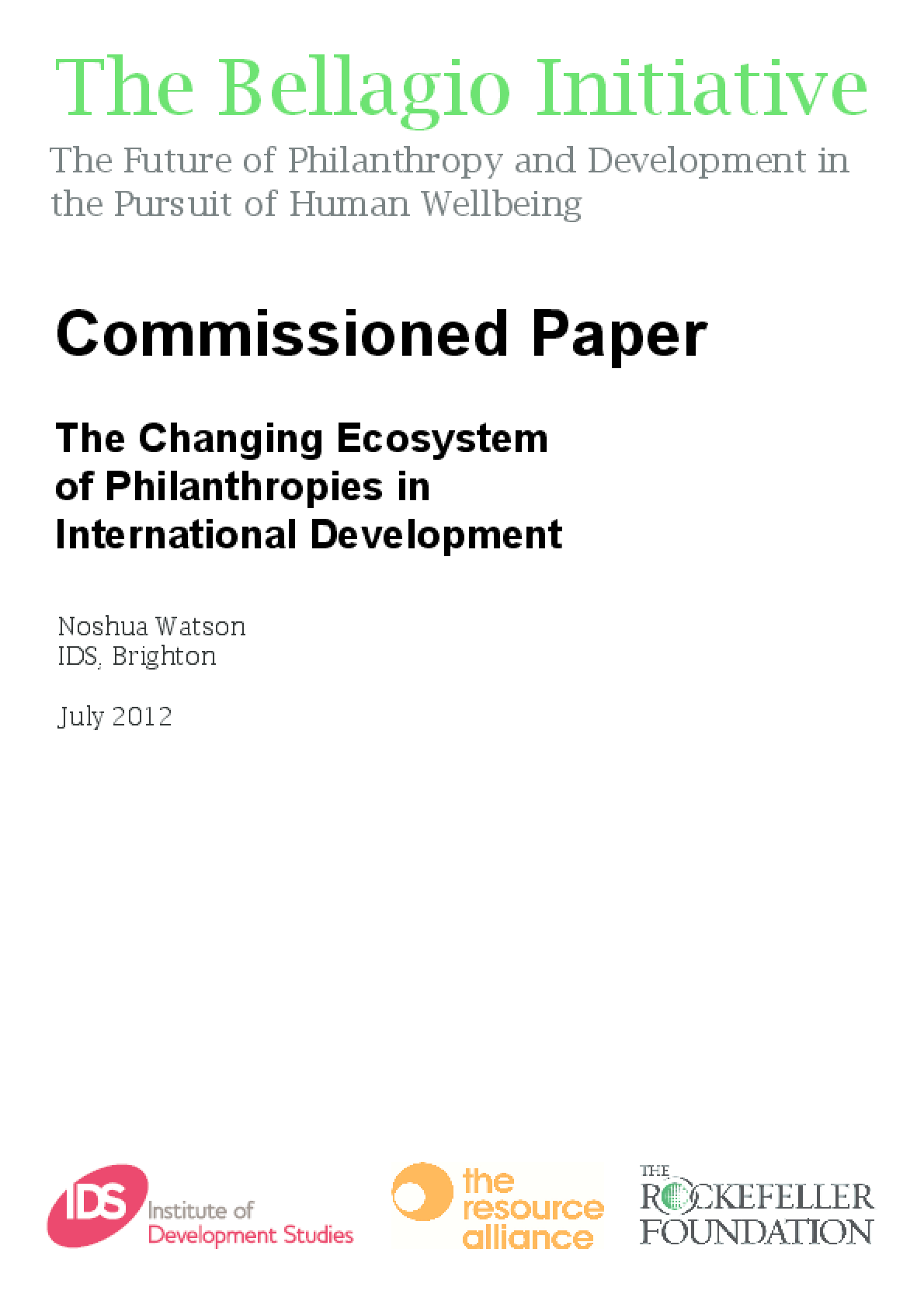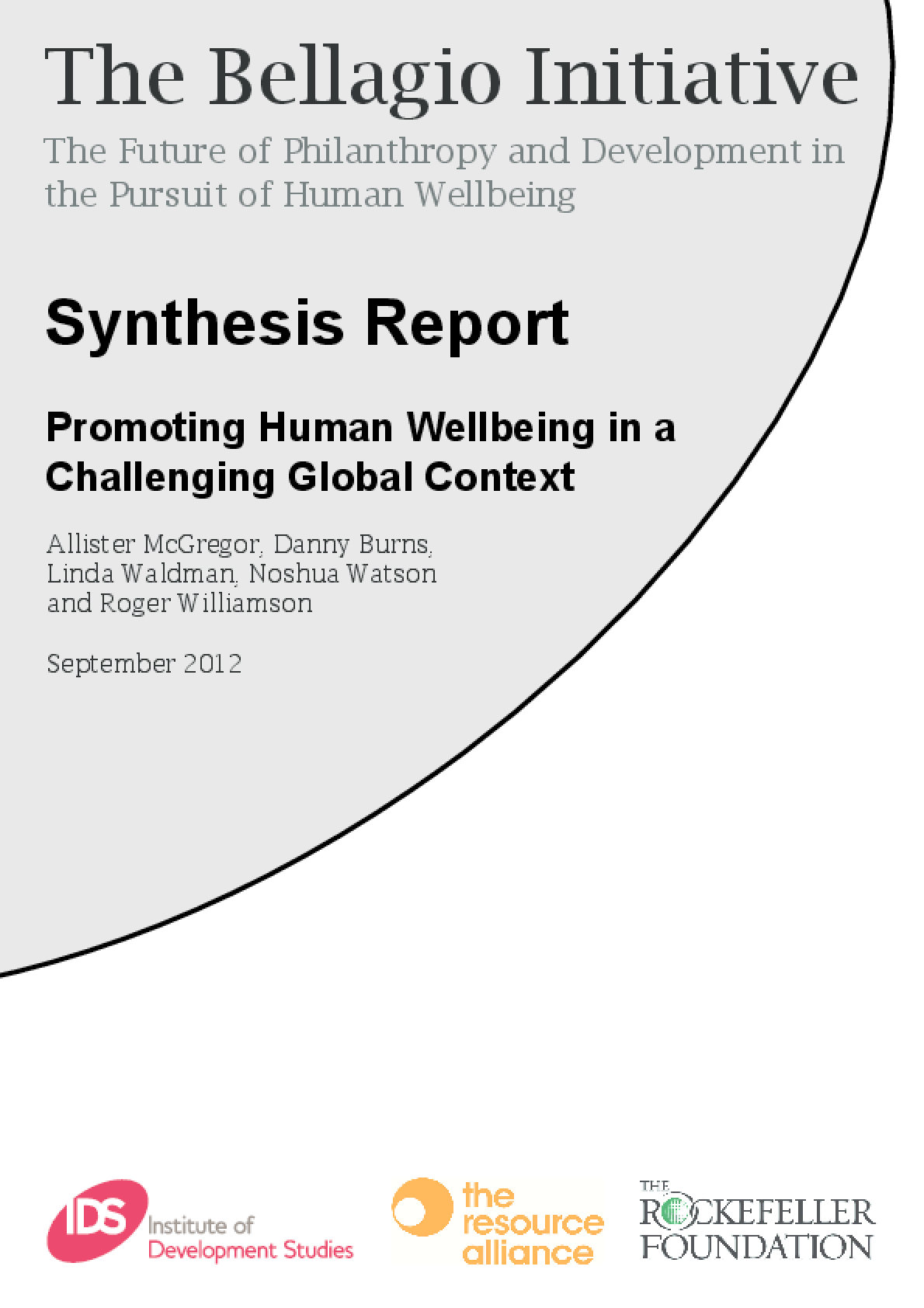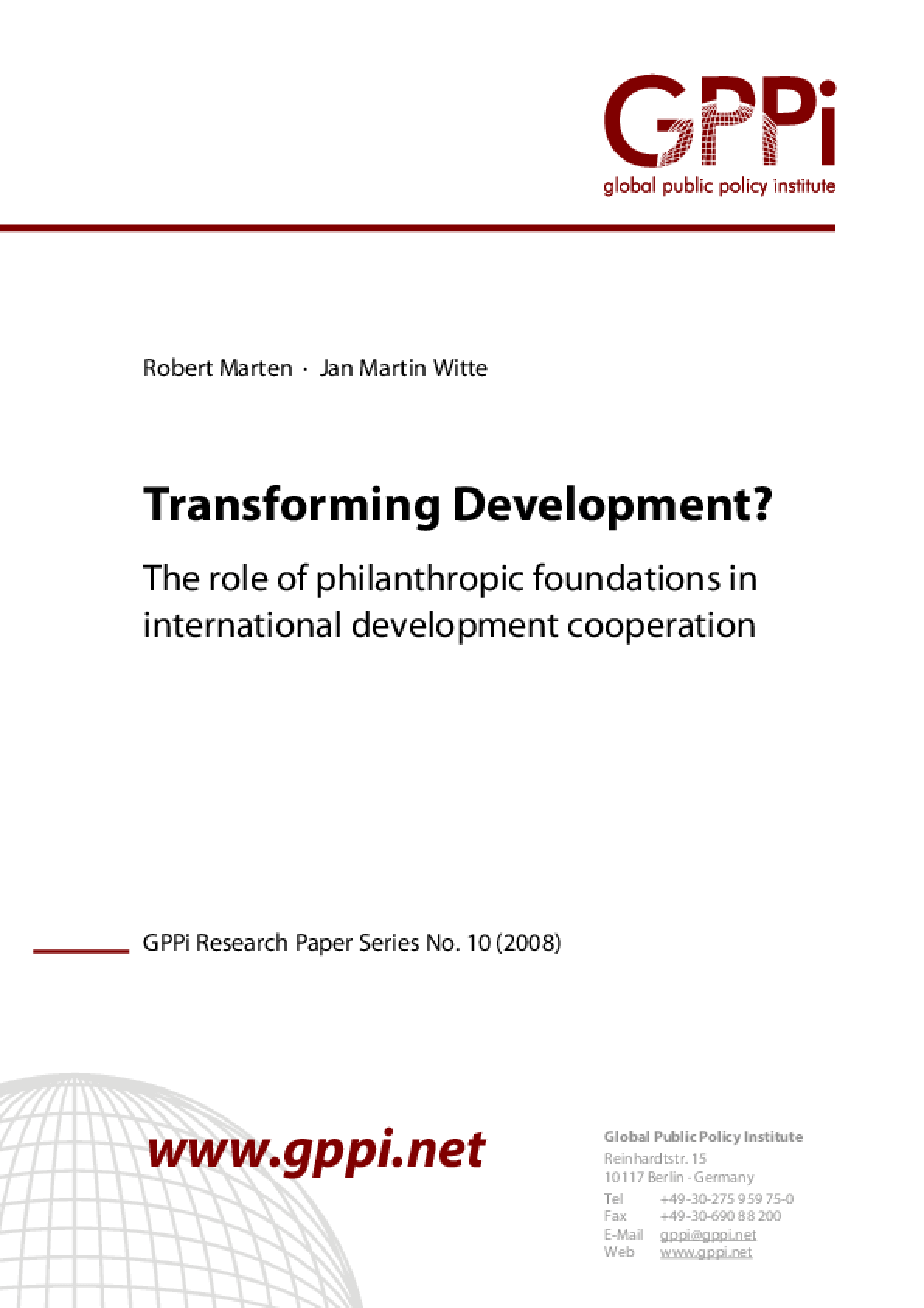841 downloads · 1167 visualizações
Philanthropy as an Emerging Contributor to Development Cooperation
The world is at a pivotal moment for global development cooperation. While many stakeholders are brought increasingly into international development processes, philanthropy stands apart, despite the scale, ambition and potential of philanthropy’s contributions to international development.
A range of issues and recommendations are raised in this report, commissioned by the United Nations Development Program. Philanthropy’s contributions to international development should be better measured, and there is a need for a stronger emphasis on better data overall in terms of both measuring progress, and enabling a better understanding of the range of potential grantees working on development themes.
This report was commissioned by the United Nations Development Programme as a background paper for the conference International Development Cooperation: Trends and Emerging Opportunities — Perspectives of the New Actors in Istanbul, June 2014.
Disclaimer: The views presented here are the contributors’ and do not necessarily reflect the views and position of the United Nations Development Programme.
Highlights
- In 2011 alone, at least 300 US foundations contributed over $770 million towards MDG Goal 1 of eradicating extreme poverty and hunger
- Remittances sent home by migrants to developing countries are equivalent to more than three times the size of official development assistance.
- In 2013, India was the top destination country for officially recorded remittances ($70 billion), with the next three highest being China ($60 billion).
- 90,000 foundations are registered in the US, with the top 1,122 foundations accounting for nearly half of all foundation giving.
- Were the middle classes to donate an average of 1% of their annual spending to charity by 2030, they would contribute an estimated $550 billion to civil society per year.
Participantes
